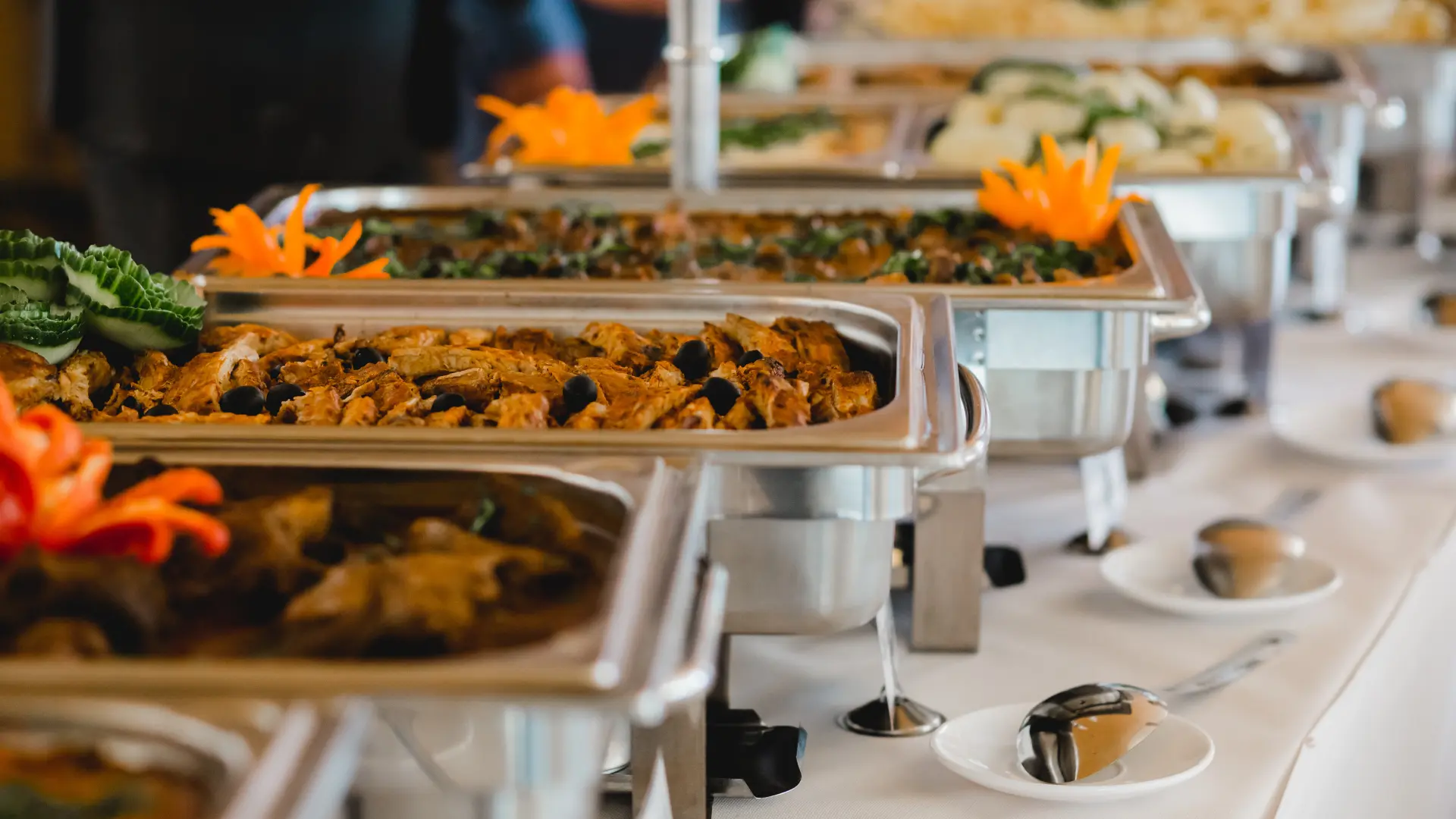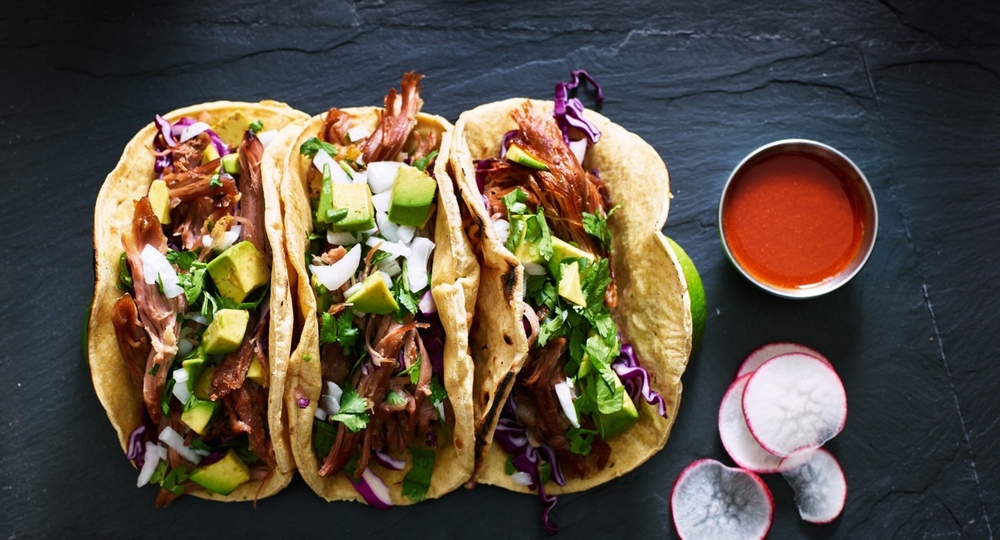Table of Contents

What is catering?
No big celebration is complete without a feast to match the occasion. But whipping up complex, delicious dishes for many people to enjoy is easier said than done. That’s why most hosts rely on caterers.
But, what is catering, really? What exactly does it entail, and does it differ based on the type of event?
This guide will unpack what it truly means to be a caterer. We’ll explore different kinds of catering, day-to-day life as a caterer, and other key aspects of the profession. Then, we’ll dive into some crucial strategies you can use to break into this popular industry quickly and successfully.
The different types of catering
There are several different kinds of catering businesses—and no, they’re not distinguished by the types of cuisine they make. Instead, they’re sorted by the kind of clientele they serve. To that end, the three most common types of catering are:
- Corporate – Whether it’s for business meetings, holiday parties, or any other commercial event, corporate caterers supply food for companies and their employees. This style of catering often involves dropping food off in disposable trays rather than sticking around to serve everybody.
- Wedding – Wedding caterers help couples decide on their menu for the big day, prepare the space and enough food to serve their guests, and take care of other culinary tasks—sometimes including drink and dessert service.
- Casual events – From birthdays to banquets and everything in between, casual caterers are ready to take on any sort of event and prepare a menu that complements the occasion.
What do caterers do?
There’s more to catering than cooking huge portions of food and serving guests. In fact, a lot of planning, perpetration, and patience is involved. More often than not, caterers are responsible for:
- Devising menus – While clients may suggest the kinds of foods and beverages they want for their event, it’s ultimately up to caterers to work with them to develop an exact menu. Menu planning must account for the religious, ethical, and dietary considerations of the guests, as well as the time, resources, and skills necessary to pull the menu off before the event.
- Logistics – How many servers will you need? How about ingredients? When will you need to arrive to ensure everything is set up in time? Caterers must tend to these and similar logistical concerns to effectively manage their businesses.
- Staffing – Like other business owners, caterers are responsible for hiring and overseeing their crew.
- Customer service – When it comes to special occasions, hosts may be slightly on edge hoping everything goes perfectly—especially for events like weddings. To that end, caterers must be on-site to mitigate any food-related issues and respond quickly (and calmly) to customer concerns and requests.

What skills are necessary to succeed in catering?
Besides being able to prepare delicious food in large quantities, there are a variety of other related skills caterers need. To find success in the catering industry, focus on developing your:
- Interpersonal skills – As mentioned, caterers need to hire staff and deal with client-related issues. They also need to forge strong relationships with food suppliers to maintain consistent access to affordable, high-quality ingredients—not to mention the strong relationships they must build with clients to ensure referrals and repeat business.
- Leadership abilities – Catering teams need leaders to delegate tasks and direct work. Caterers must also learn to motivate their team members to ensure they’re always pulling their weight and contributing to the group effort.
- Attention to detail – Successful caterers must hone in on each and every plate they serve to ensure that quality, presentation, and other aspects of the dish are spot-on.
- Food safety knowledge – During a large catering event, food can sit out for an extended time without refrigeration, staff may mishandle ingredients, and dishes can become cross-contaminated. Adept caterers know when to chill, serve, or toss different items to ensure every guest goes home with a satisfied—rather than sour—stomach.
Where is the catering industry headed?
The catering industry raked in over $60 billion in the United States alone in 2022. Even more impressive is that the industry is expected to expand by nearly 8% per year until 2030.
According to nearly half of all established caterers, corporate events are the fastest-expanding part of the industry. Weddings, however, are a close second, and 35% of catering professionals report that weddings are their main source of revenue and growth.
All this is to say that if you want to enter the catering business, there’s never been a better time than now.
Breaking into the catering industry can seem like a daunting prospect at first. Besides forging relationships and hiring staff, one of the most difficult tasks can be finding a suitable commercial kitchen space to operate out of. Luckily, CloudKitchens has caterers covered with ghost kitchens and logistics support that can make preparing food at scale a breeze.
Get your catering business started in a ghost kitchen from CloudKitchens
More often than not, the majority of food preparation for catering gigs is done off-site. So, if you don’t have a suitable space to prepare your meals, it’ll be difficult to start—and more importantly, grow—your business.
Fortunately, CloudKitchens empowers aspiring caterers with the affordable, effective commercial kitchen spaces they need to start their businesses. And if you’re already running a catering business, CloudKitchens can help you reduce your operating costs and streamline food production.
We have ghost kitchens all across the United States (and a few up in Canada), so find the location nearest you, and take a tour to envision the possibilities for yourself.
Explore ghost kitchen locations across the US:
- Ghost kitchens in Seattle
- Ghost kitchens in San Francisco
- Ghost kitchens in LA
- Ghost kitchens in NYC
- Ghost Kitchens in Toronto
- Ghost Kitchens in Atlanta
- Ghost Kitchens in Dallas
- Ghost Kitchens in Chicago
- Ghost Kitchens in Denver
- Ghost Kitchens in Miami
| DISCLAIMER: This information is provided for general informational purposes only and the content does not constitute an endorsement. CloudKitchens does not warrant the accuracy or completeness of any information, text, images/graphics, links, or other content contained within the blog content. We recommend that you consult with financial, legal, and business professionals for advice specific to your situation. |
Sources:
East Coast Polytechnic Institute. Different Types of Catering: Which Setting is Right for You?. https://www.ecpi.edu/.
Office for Standards in Education. Inspecting Post-16: Hospitality and Catering. https://dera.ioe.ac.uk/.
Indeed. A guide to caterer skills (and how to improve them). https://uk.indeed.com/.
Grand View Research. U.S. Catering Services Market Size, Share & Trends Analysis Report By Type (Workplace/ Office Catering, Event Catering), And Segment Forecasts, 2023 – 2030. https://www.grandviewresearch.com/.
More insights & stories

